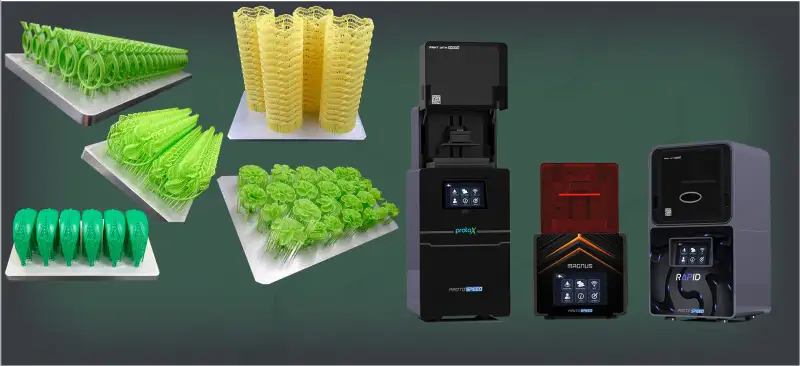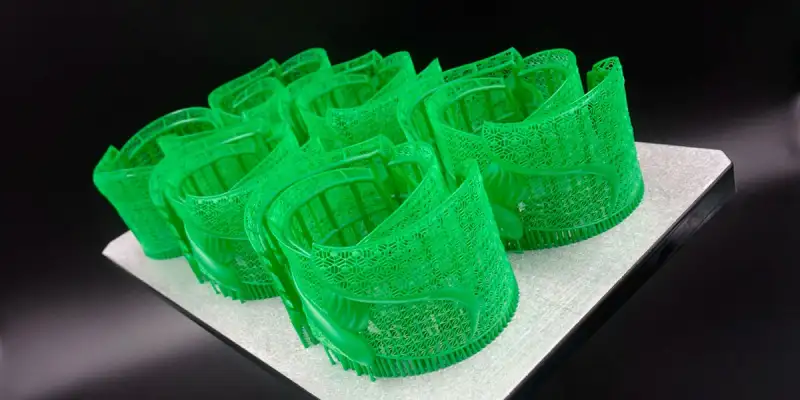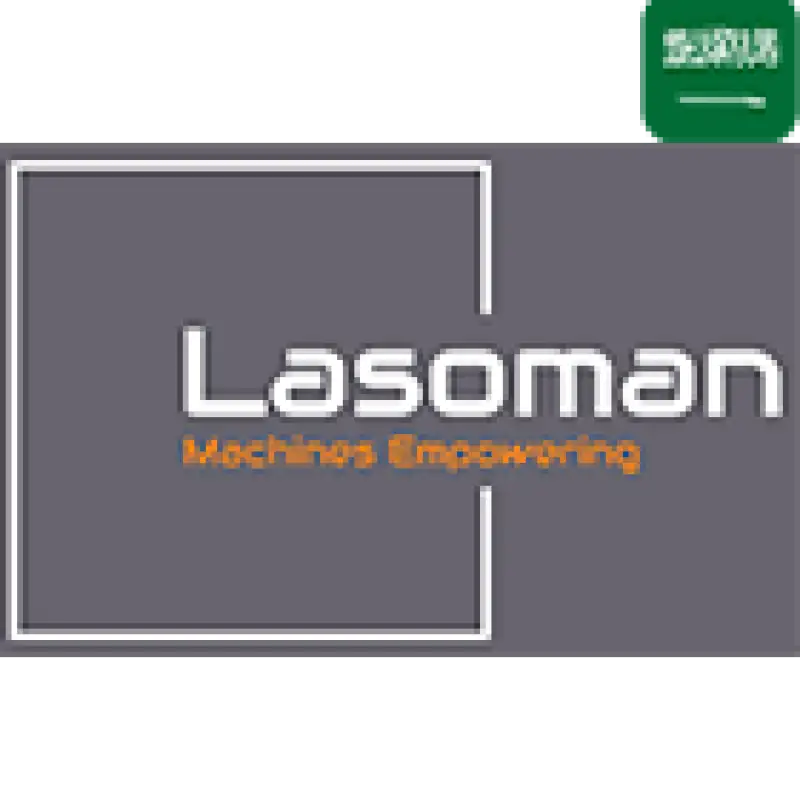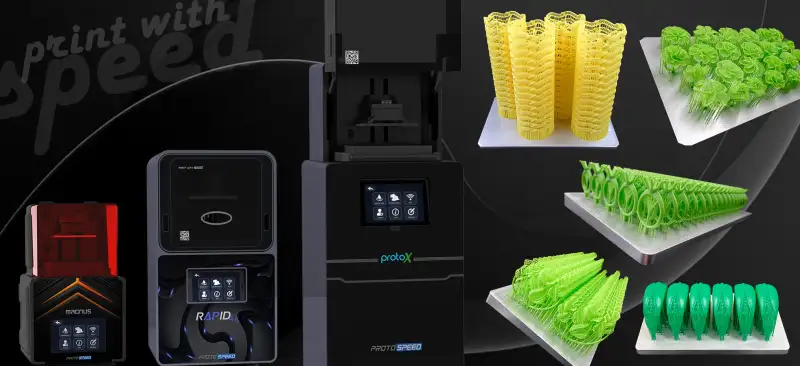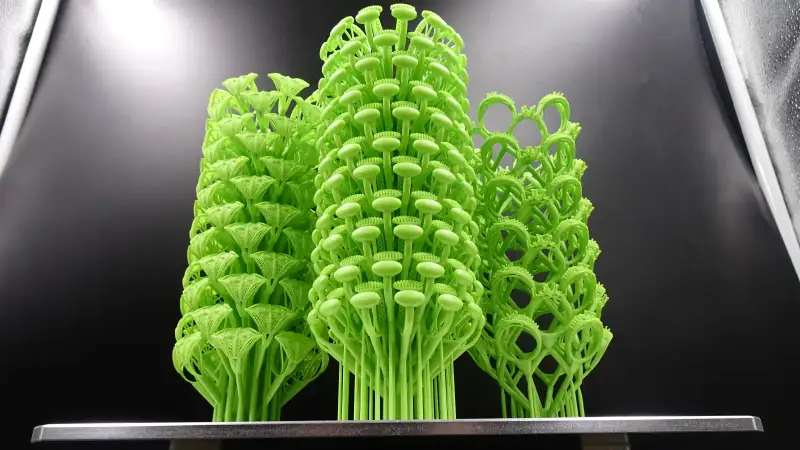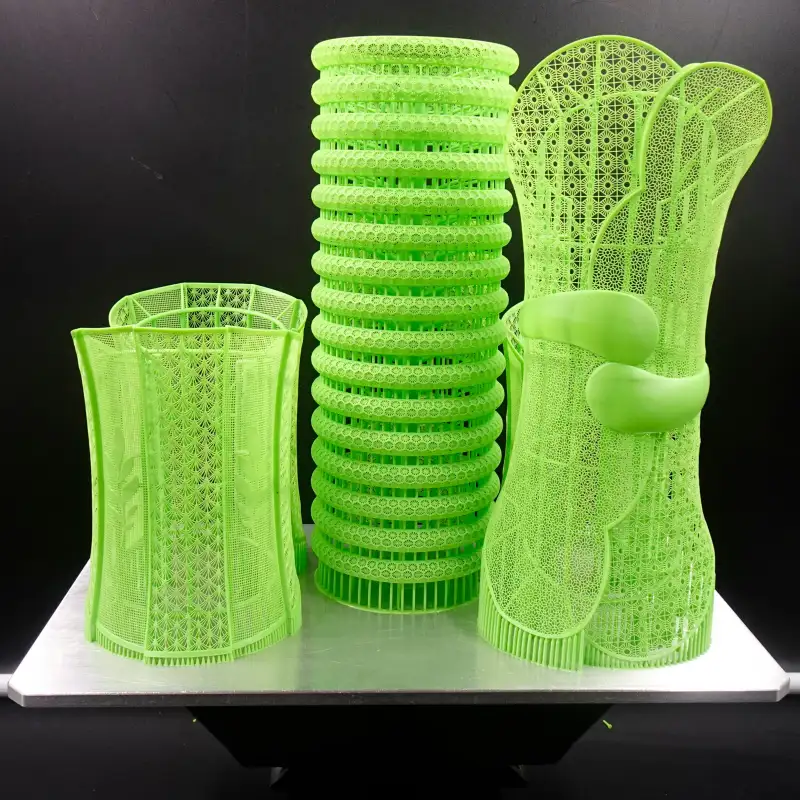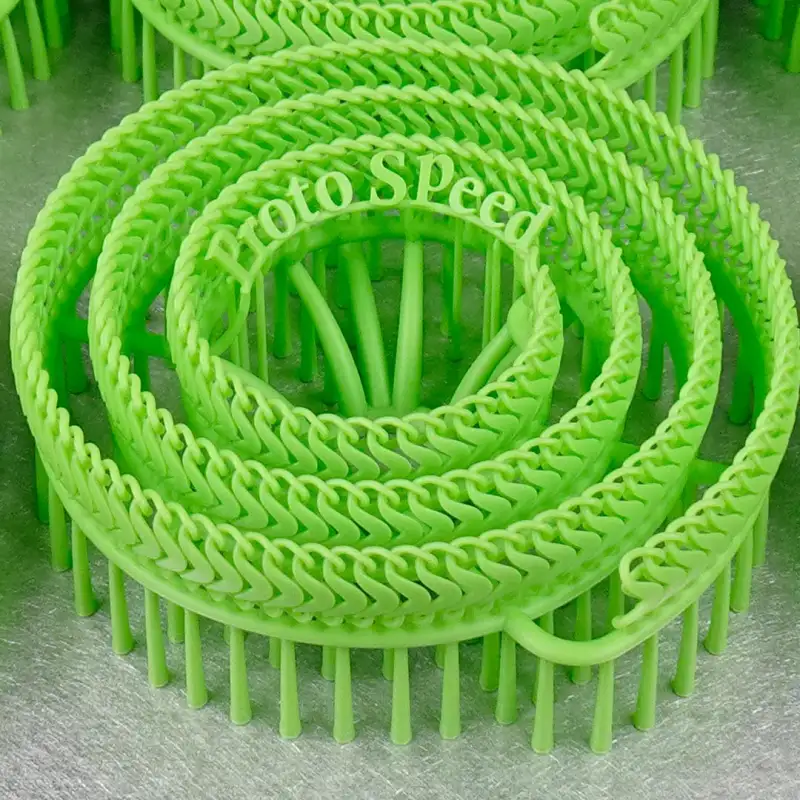The Middle East jewelry market demands precision, speed, and flawless casting results. Choosing the best 3D printer for jewelry in 2026 requires more than comparing specifications. It requires evaluating casting performance, resin burnout quality, XY precision, and long term reliability under regional production conditions.
3D Printing for Jewelry
The demand for precision, rapidity, and scalability in jewelry manufacturing is at a record-breaking level. Jewelers require technology that ensures impeccable precision while maintaining efficiency, whether creating elaborate custom pieces or managing large manufacturing. The Rapid jewelry printer by Protospeed excels in this field.
Resin 3D printing has revolutionized the way we prototype, produce, and cast intricate parts, especially in industries such as jewelry, dental, and precision engineering. Whether you're a beginner or a seasoned professional, understanding the terminology of resin printing can drastically improve your print quality, troubleshooting skills, and workflow efficiency.
The combination of suitable materials and hardware is crucial in the rapidly evolving field of jewelry design. A perfect combination of speed, accuracy, and performance is achieved when ProtoSpeed 3D printers are combined with castable resins from ProtoResins. Here are some reasons why this combination is transforming the way jewelers create their designs.
Rapid prototyping has become essential in modern, fast-paced design and manufacturing environments. Modern product development's success is contingent upon precision, cost-efficiency, and time to market.
Reliability, accuracy, and speed are not extras in the dynamic jewelry production industry; they are essentials. The preferred option for discerning jewelers worldwide is Protospeed 3D printers. Protospeed offers a customized solution to meet your needs, whether managing extensive production operations or creating complex custom items
When it comes to the fast-developing field of 3D printing, innovation is not merely a term; rather, it is an absolute need. The Protospeed Magnus Series, a line of high-performance resin 3D printers designed for incredibly accurate applications, is one of the biggest innovations in Saudi Arabia's printing sector in recent years.
Speed and accuracy are no longer merely sought in the dynamic field of jewelry making; they are now necessary. 3D printing technology has seen revolutionary advancements due to the need for precise detailing, quick turnaround, and dependable performance.
The jewelry industry is moving toward lighter designs as a result of the rising price of gold. This shift represents a chance to innovate and improve sustainability, not merely a reaction to financial constraints. Jewelers can produce stunning, detailed, and structurally sound items with Protospeed's high-speed DLP 3D printers while using less gold, producing less waste, and increasing profits.
In the fast-evolving world of jewelry manufacturing, efficiency, creativity, and innovation are everything. With the rise of 3D printing technologies, new frontiers have opened for jewelers — and one of the most groundbreaking techniques making waves today is designing chains in a spiral configuration.


